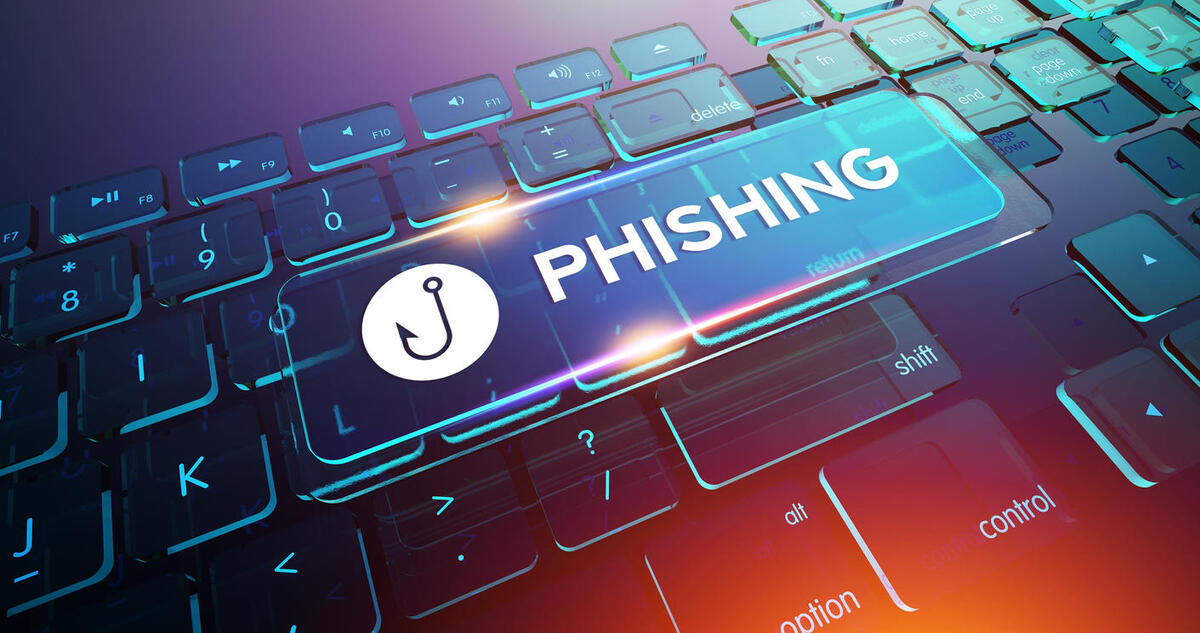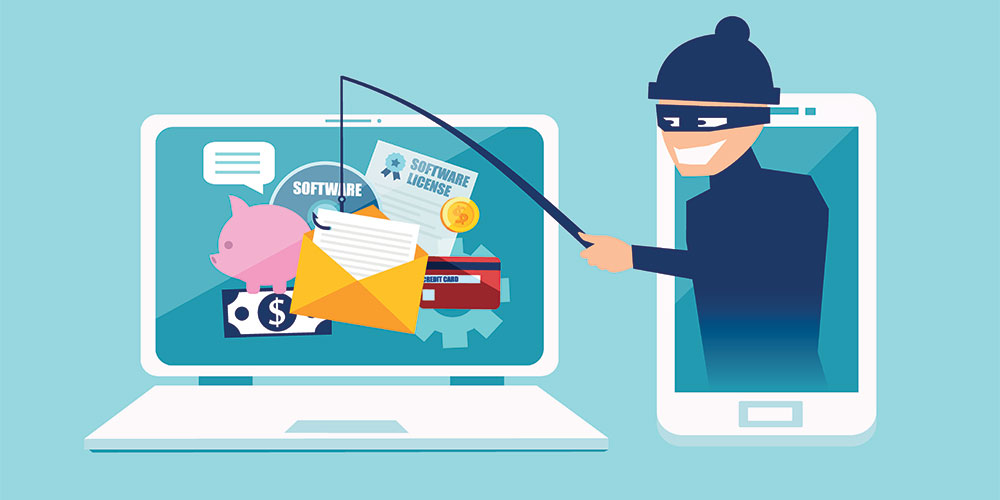Avoid Phishing Online and Protect Your Identity

Wed, Jun 23, 2021 07:48 AM
Now that the everyone is now using the internet in a daily basis, criminals have also switched into online activiies. There are a lot of ways that they can get your money if not, valuable information that can circulate in the web. Consumers today are constantly concerned about keeping their identities safe and secure online. Let's pretend you're minding your own business while looking for directions on how to build a coffee table or weed your front lawn.
You click a link that claims to give what you desire as you navigate from site to site. It's just that it's not a legitimate website. You've now joined the one-third of Americans who have had their identities stolen.
It happens quickly. Scammers use emotions like fear or excitement to get you to behave against your will. Scammers can gain access to your most sensitive information with just one false click on a link or email attachment.
That click allowed malware to penetrate your computer without you even realizing it. Phishing is a type of malware that can take many different forms, including ransomware, spyware, adware, and viruses, but they all end up compromising your finances, identity, or both.
According to the ACCC, phishing scams cost the world about $175 million in 2020. Here's what you need to know in order to stay safe.
Phishing
Scammers exploit phishing to convince unwary customers to provide sensitive personal information such as their social security number, date of birth, or login credentials to a financial or credit card account, which they can use to obtain lines of credit, make purchases, or sell to other criminals.
How Does Phishing Work?
The sender of a common email phishing scam poses as a genuine entity, such as an online merchant, government agency, or credit card provider. The fraudster employs one of two major strategies: providing something that appears to be too good to be true, or preying on common concerns.

Look for Red Flags
Phishing emails and messages frequently appear to come from a reputable source, such as a bank, credit card company, online store, or online payment service. Consumers should be aware of communications from reputable organizations that include the following:
-
Claim they've seen unusual activity or attempted log-ins to an online account.
-
Assert that there is an issue with your account or payment information.
-
Tells you, you need to verify some personal information.
-
Add a fictitious invoice
-
Want you to make a payment by clicking on a link.
-
Suppose you're qualified for a government rebate.
-
Provide a coupon for free merchandise
The discrepancies are usually found in the details. Keep your eagle eye peeled for these.
If the "From" or "Reply to" email address does not match the alleged sender's public website address, proceed with care.
Keep an eye out for misspellings and glaring grammatical errors. Most legitimate businesses hire copywriters and editors to ensure that their emails are properly written.
Open email attachments only if you expect them, even if they come from trusted sources. .exe and.zip file extensions should be avoided at all costs.
Hover your cursor over the connected word or phrase before clicking on any hyperlinks. Wait for the website address to appear on the screen. Don't click if the address doesn't match the description.
Preventing Identity Theft
Subscribe to a trustworthy provider's computer security protection, such as McAfee, Norton, or Kaspersky. These firms scan the internet for new viruses and frauds on a regular basis, and they'll keep your computer up to date to protect you from fraud.
Check to see if your software is up to date. Companies will release updates on a regular basis to address security flaws and vulnerabilities.
Keep an eye on your typing. Typo-squatting, or the technique of purchasing website domains that are just a keystroke away from legitimate sites and then imitating them, is another way phishers deceive customers.
Use multi-factor identification if your bank, credit card, or other financial institution offers it. That means that if you unintentionally reveal your password or an algorithm successfully guesses it, your data is protected by a second layer of security. Even the savviest customer could fall for gimmicks like sending a confirmation code to your cell phone if you're not on the appropriate page to begin with.
Make a copy of your data. Google Drive and Microsoft OneDrive both allow you to sync your PC to their cloud storage servers, ensuring that your files are not lost if your machine is infected with ransomware.
Remember that the IRS will not call you to demand immediate payments or threaten you with arrest if you don't comply, and it will not contact you via email, text messages, or social media to request personal or financial information such as PIN numbers, passwords, or other similar information for credit cards, banks, or other financial accounts.
Featured Plan

Bundles starting from $39.99/mo.
With Xfinity, you can get an amazing internet speed up to 1000 Mbp, over 260+ of digital TV channels, unlimited talk time nationwide, business plan, and home security services. Xfinity Comcast is the largest cable provider in the US.
View More Deals! (833) 396-3209